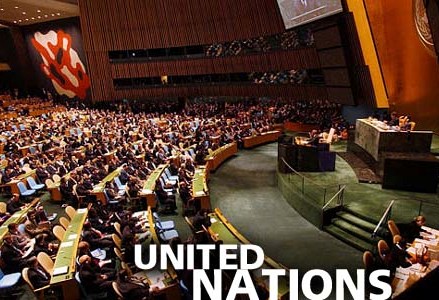ROUNDUP: UN: Serious impact caused by expulsion of relief groups
 New York - Khartoum's expulsion of major international humanitarian groups from Darfur has caused serious deficiencies in healthcare services and shelter for hundreds of thousands of people in the region, the top UN humanitarian coordinator said Thursday.
New York - Khartoum's expulsion of major international humanitarian groups from Darfur has caused serious deficiencies in healthcare services and shelter for hundreds of thousands of people in the region, the top UN humanitarian coordinator said Thursday.
But Khartoum has refused to rescind its decision and readmit the 13 expelled international and three local relief organizations despite repeated demands by the United Nations and other governments. They have expressed concerns that the appoach of the rainy season will worsen living conditions in the impoverished Sudanese western province.
The country's representative to the United Nations said that Khartoum would not reconsider.
"It is not reversible because we did it for our national interests," Sudan's UN Ambassador Abdalmahmood Mohamad told reporters.
The UN Security Council held a closed-door session on the situation in Darfur to hear a briefing from Djibril Bassole, the UN- African Union mediator in the conflict.
Oxfam, CARE International and Doctors Without Borders are among the 13 international groups for which Khartoum cancelled work permits and expelled in retaliation for the decision by the International Criminal Court (ICC) to seek the arrest of President Omar al-Bashir for crimes against humanity and war crimes in Darfur.
The groups expelled were responsible for half of the humanitarian assistance given to hundreds of thousands of people in the war-torn province.
John Holmes, the UN undersecretary general who coordinates emergency humanitarian assistance, told the council during its debate that the departure of the relief groups has left "serious gap" in health care and shelter for close to 700,000 Darfurians who relied on those groups.
The UN and the Sudanese government this week devised stop-gap measures to repair the deficiency in humanitarian services, but UN officials feared those steps would not be sufficient before the rainy season expected in May, particularly in rural areas.
"The Sudanese ministry of health, the World Health Organization and others are responding as best they can," Holmes said. "The sustainability of this response is in question, but again it is welcome that the government has committed to providing salaries, staff and supplies until the end of the year."
Holmes said 800,000 people received drinking water from the government, the UN Children's Fund and non-governmental organizations, but the water provisions could become ineffective within four weeks because of logistical problems.
He said 650,000 people are cut off from health services provided by the expelled relief groups and nearly 700,000 others are in need of shelter material ahead of the rainy season.
"Security remains another fundamental concern," Holmes said. He said attacks, car hijackings and compound invasions have grown "increasingly sinister" in nature in recent weeks.
Holmes said local media messages attacking foreign groups and their workers have increased, creating an environment that may worsen over time. (dpa)